
by Admin | Mar 12, 2016 | AI World Society Summit
(March 14th, 2016) The battle between parts of the U.S. private sector and government officials over the tension between privacy and law enforcement goes on.
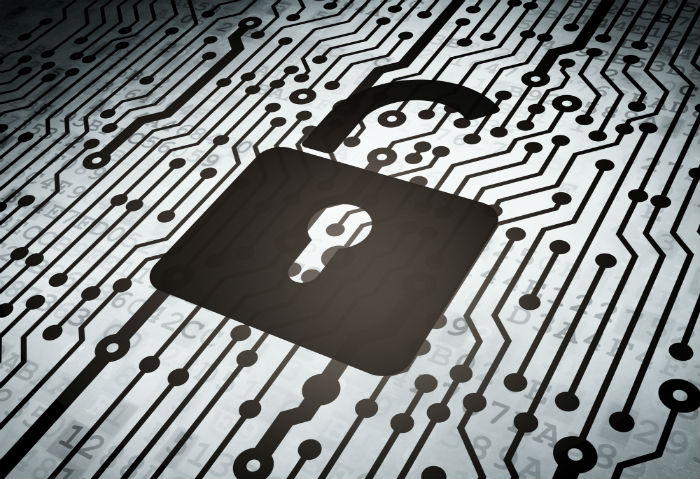
Politico reported on California Sen. Dianne Feinstein “criticizing technology companies for preventing law enforcement from accessing encrypted data yet allegedly mining similar data to better target advertisements. The lawmaker is equating apples and oranges, {some cyber} specialists said, because companies that deliver ads to users typically have access to unencrypted versions of any data they use to target those ads. That means they could turn that data over in response to a search warrant. In the legal battle between Apple and the Justice Department over the encrypted iPhone used by San Bernardino terrorist Syed Farook, by contrast, Apple can’t simply decrypt the data.’’
“There is no relation between these encryption issues and the way ads are targeted,” Ronald Rivest, a cryptography researcher at the Massachusetts Institute of Technology, told Politico. “Browsers such as Google’s Chrome, for example, access unencrypted data that identifies the Web sites a user visits even if those sites encrypt what the customer does once on the site itself, said Joe Hall, chief technologist at the Center for Democracy and Technology,’’ the news service reported.
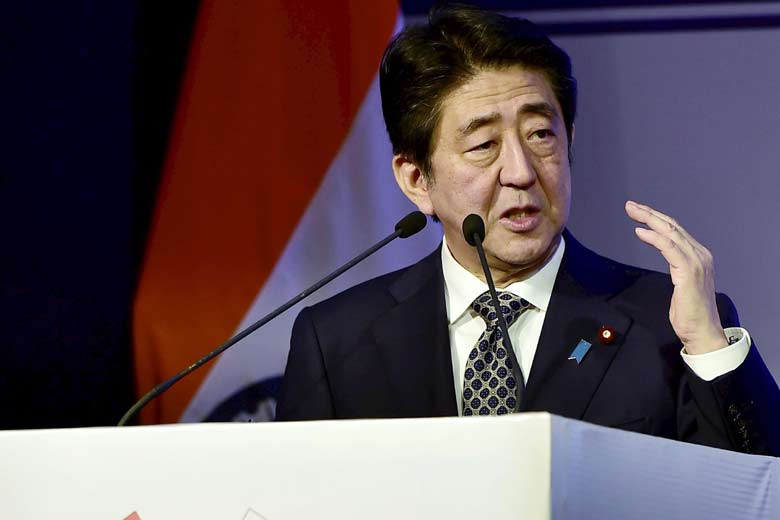
by Admin | Mar 12, 2016 | Event Updates
(March 14th, 2016) Japan is hosting international economic forums starting this month to study possible measures to reduce the volatility of financial markets. The forums are part of the preparation for the G7 Summit, May 26-27, in Japan.
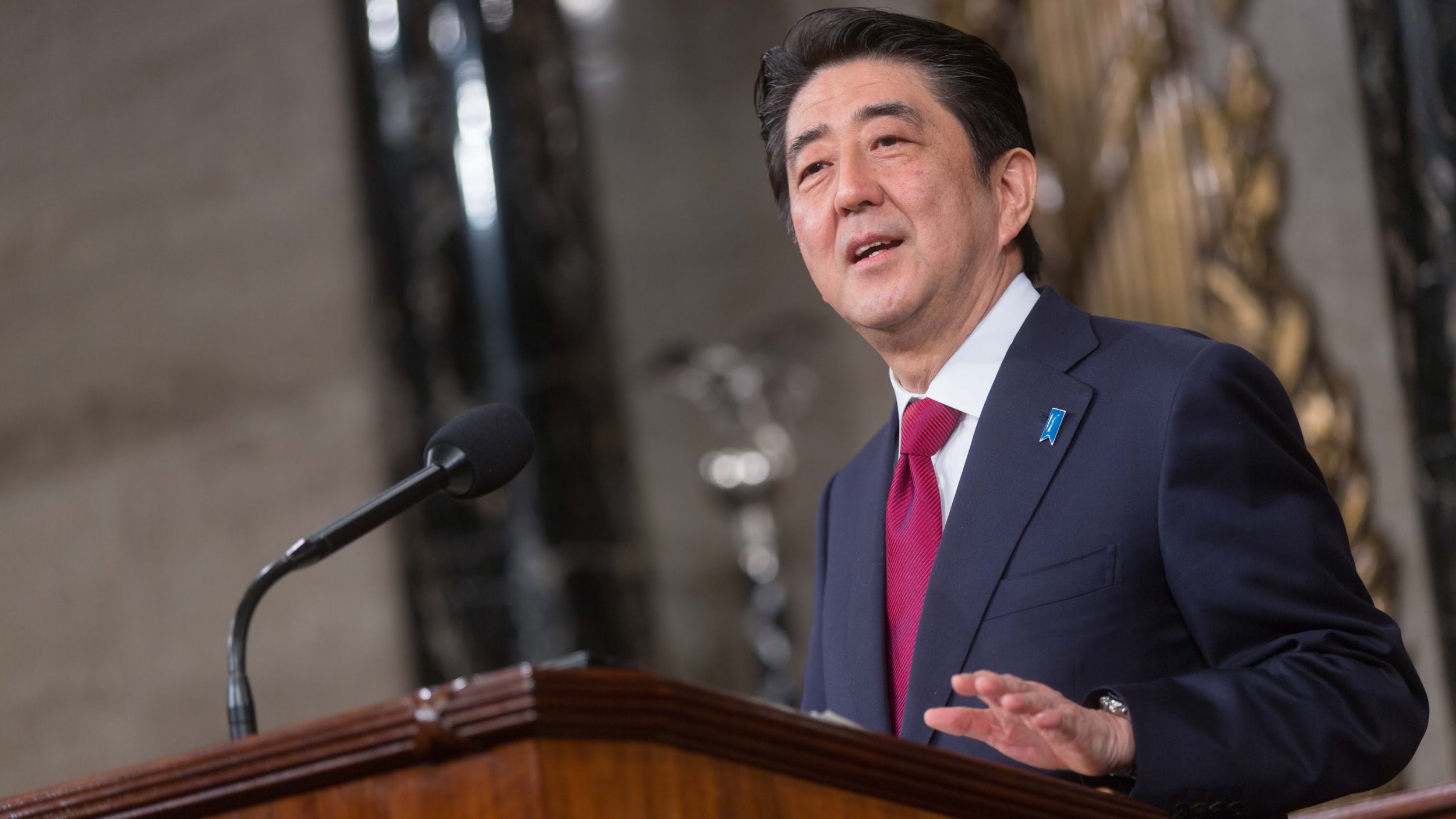
Data, opinions and analyses from the sessions will be used to aid the decision-making of national leaders, finance ministers and central bankers at the summit of the seven leading industrialized democracies.
“I think the world economic situation will undoubtedly become the biggest theme of the summit. To fulfill its responsibility as (the G-7) host (for this year), Japan will hold talks to analyze international finance and the economy,” said Japanese Prime Minister Shinzo Abe.
The government is having six meetings with international economists, central bank officials and others who will discuss possible actions to alleviate international financial uncertainty and anxiety.
Experts will put much focus on assessing the effectiveness of fiscal stimulus in major economies to combat the negative effects of the slowdown in China, Europe and elsewhere and the fall in crude-oil prices, Japanese official sources said.
See more on Efe
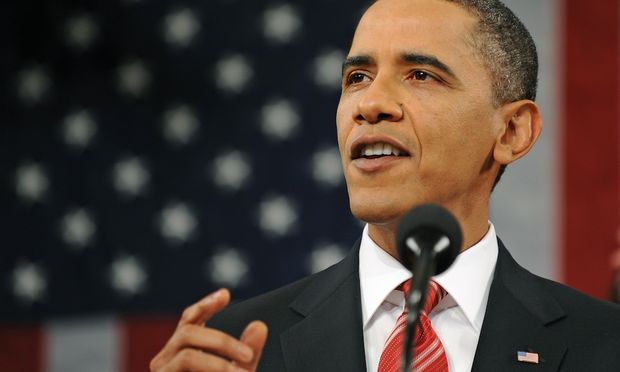
by Admin | Mar 12, 2016 | AI World Society Summit
(March 14th, 2016) President Obama said on May 11 that smartphones – such as the iPhone used by one of the San Bernardino terrorists that the FBI is trying to make Apple Inc. help it hack for information about possible ISIS links — can’t be allowed to be “black boxes,” inaccessible to the government.

He said that the U.S. high-tech industry should work with the government law-enforcement officials now instead of leaving the issue to Congress.
He said that the tech industry has an urgent duty to work out an agreement with federal law-enforcement officials that balances privacy rights and the protection of the public from terrorists and other criminals.
“You cannot take an absolutist view on this, your argument is strong encryption no matter what, and we can and should create black boxes, that I think does not strike the kind of balance we have lived with for 200, 300 years, and it’s fetishizing our phones above every other value,” he told the South by Southwest music and tech festival, in Austin, Texas.
Government lawyers have complained that the battle with Apple “is the direct result of Apple’s deliberate marketing decision to engineer its products so that the government cannot search them, even with a warrant.’’
Mr. Obama said: “The question we now have to ask is, if technologically it is possible to make an impenetrable device or system, where the encryption is so strong there’s no key, there’s no door at all, then how do we apprehend the child pornographer? How do we solve or disrupt a terrorist plot? If in fact you can’t crack that at all, government can’t get in, then everybody’s walking around with a Swiss bank account in their pocket.”
See more on Bloomberg

by Admin | Mar 12, 2016 | World Leaders in AIWS Award Updates
(March 14th, 2016) Japanese Prime Minister Shinzo Abe, who will be the main host of this year’s G7 Summit, on May 26-27, last week marked the fifth anniversary of the huge earthquake and tsunami that struck the north coast of Honshu on March 11, 2011.

He said:
“Already, five years have passed since the Great East Japan Earthquake, which claimed many precious lives and completely changed the lives of so many more people.
“When I think of the despair of those who lost beloved members of their families and friends in the disaster, I am overwhelmed even now with deep sorrow. It is with my deepest sympathy that I reiterate my sincerest condolences. I would also like to extend my heartfelt sympathies to all those who have been affected by the disaster.
“Many people are still leading uncomfortable lives in the affected areas. There are many who cannot return to their beloved homes because of the accident at the nuclear power plant.
“Every time I visit the affected areas, I fully sense that ‘the disaster is continuing.’ And yet, step by step, the reconstruction is making steady progress. Revitalization of the livelihoods of the residents is similarly gathering pace and becoming fully fledged alongside the construction of new housing.
“By being aware of the circumstances of each and every one of the affected individuals, we commit ourselves to such tasks as providing care for their minds and bodies, forming new local communities and supporting industrial development of the affected areas, so that reconstruction leads to the attractive revitalization of the region.
“Consequently, with the determination to never allow the valuable lessons learned from the disaster to erode, we will ceaselessly review disaster-prevention measures by constantly integrating the latest wisdom and knowledge. Once again, I would like to make a firm pledge here that the government will exert its unified efforts to build a strong and resilient nation that is resistant to disasters.’’

by Admin | Mar 12, 2016 | World Leaders in AIWS Award Updates
(March 14th, 2016) Irina Bokova, director general of the United Nations Educational, Scientific and Cultural Organization (UNESCO), participated March 12 and 13 in the Global Education & Skills Forum in Dubai (United Arab Emirates), which focused on the theme ‘’Taking greater collective responsibility for public education’’
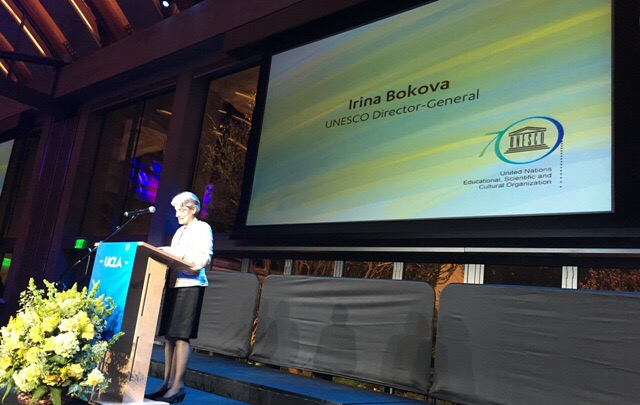
The Boston Global Forum (BGF) collaborates with UNESCO on global education and citizenship projects, especially through the Global Learning and Global Citizenship program at the University of California at Los Angeles (UCLA). Prof. Carlos Alberto Torres, Distinguished Professor of Social Sciences and Comparative Education and UNESCO Chair in Global Learning and Global Citizenship Education at UCLA, is a member of the BGF’s Board of Thinkers.
You may see and hear him in his recent BGF online video, in which he discusses the meaning of global education and citizenship
Bringing together public- and private-sector leaders, the Dubai forum addressed ways to make education everybody’s business, reconcile relevance, excellence and inclusiveness, and promote stronger linkages for young people with the fast-changing world of work.
The director general shared UNESCO’s vision on what education should look like in 2030; on global citizenship; on girls’ and women’s empowerment; on addressing humanitarian crises, and on related issues in a session moderated by Economist senior editor Ann McElvoy. Ms. Bokova also interacted with 40 girls given the Sheikh Fatima Bint Mubarak award for their academic success and commitment to social responsibility. She also attended the Global Teacher Awards ceremony.
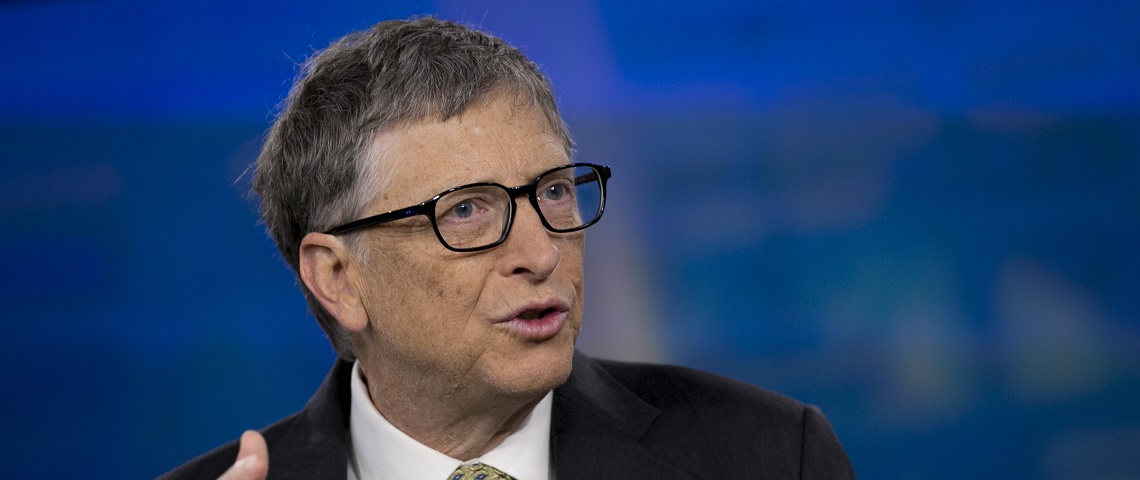
by Admin | Feb 28, 2016 | AI World Society Summit
(29th Feb 2016) Robert Whitcomb , Managing Editor of the Boston Global Forum shared his view about The Terrorist’s iPhone

The U.S. government has the much stronger argument in its battle with Apple over getting access to information in the iPhone of one of the two San Bernardino terrorists.
The fact is, as Microsoft founder Bill Gates told the Financial Times “This is a specific case where the government is asking for access to information.’’
“They are not asking for some general thing; they are asking for a particular case.”
“It is no different than the question of should anybody ever have been able to tell the phone company to get information, should anybody be able to get at bank records” to investigate a crime, Mr. Gates added
And the government’s case rests on centuries of law holding that “no item — not a home, not a file cabinet and not a smartphone — lies beyond the reach of a judicial search warrant” in investigating crimes, Manhattan District Attorney Cyrus Vance noted.
There exists no “right of privacy” to withhold evidence of a crime. The idea that the cellphone is a privileged device that must be off-limits to law enforcement is absurd.
The fact is that a federal court is not telling Apple to create a “backdoor’’ that puts all users in danger of being hacked by identity thieves. It has told Apple to help the Federal Bureau of Investigation get into a single iPhone in order to obtain information that might prevent other people from being murdered by ISIS-related terrorists.
We don’t want to break anyone’s encryption or set a master key loose on the land,” FBI Director James Mr Comey said.
A federal judge ordered Apple to create software to let the FBI try every password possible without the phone’s data disappearing. Apple chief executive Tim Cook asserts that such a “backdoor” tool could be used on other phones. But Apple could safely create and control the software to unlock a specific device when the
government obtains a warrant detailing compelling circumstances. It’s difficult to think of circumstances more compelling than terrorism.
Law enforcement must have the tools to keep up with criminals, who increasingly use such tools as encryption, Bitcoin currency and disappearing messages. In this case, Apple, rather than focusing on fears that the publicity connected with letting the U.S. government get into a single cellphone might hurt its gigantic profits, should focus on saving the lives of potential future terrorism victims.
Apple should consider the public welfare and hand over to the government access to the information that phone.
See more
The U.S. government has the much stronger argument in its battle with Apple over getting access to information in the iPhone of one of the two San Bernardino terrorists.
The fact is, as Microsoft founder Bill Gates told the Financial Times, “This is a specific case where the government is asking for access to information.’’
“They are not asking for some general thing; they are asking for a particular case.”
“It is no different than the question of should anybody ever have been able to tell the phone company to get information, should anybody be able to get at bank records” to investigate a crime, Mr. Gates added
And the government’s case rests on centuries of law holding that “no item — not a home, not a file cabinet and not a smartphone — lies beyond the reach of a judicial search warrant” in investigating crimes, Manhattan District Attorney Cyrus Vance noted.
There exists no “right of privacy” to withhold evidence of a crime. The idea that the cellphone is a privileged device that must be off-limits to law enforcement is absurd.
The fact is that a federal court is not telling Apple to create a “backdoor’’ that puts all users in danger of being hacked by identity thieves. It has told Apple to help the Federal Bureau of Investigation get into a single iPhone in order to obtain information that might prevent other people from being murdered by ISIS-related terrorists.
We don’t want to break anyone’s encryption or set a master key loose on the land,” FBI Director James Mr Comey said.
A federal judge ordered Apple to create software to let the FBI try every password possible without the phone’s data disappearing. Apple chief executive Tim Cook asserts that such a “backdoor” tool could be used on other phones. But Apple could safely create and control the software to unlock a specific device when the
government obtains a warrant detailing compelling circumstances. It’s difficult to think of circumstances more compelling than terrorism.
Law enforcement must have the tools to keep up with criminals, who increasingly use such tools as encryption, Bitcoin currency and disappearing messages. In this case, Apple, rather than focusing on fears that the publicity connected with letting the U.S. government get into a single cellphone might hurt its gigantic profits, should focus on saving the lives of potential future terrorism victims.
Apple should consider the public welfare and hand over to the government access to the information that phone.

by Admin | Apr 16, 2016 | News

Catarina Caldeira da Silva was born in Lisbon, Portugal under Salazar’s regime. This dictated her parents’ choice to enroll her and her three brothers in the German School of Lisbon, thus giving them the opportunity to be in contact with different cultures and mindsets since kindergarten. This experience has proven to be of paramount importance in Ms. Caldeira da Silva’s career choices and her perception of the world. She has a degree in history from the Nova University in Lisbon and an M.A. in European Studies from the European College in Bruges, Belgium. She has dedicated her professional life to the European project and joined the European Parliament as early as 1986, immediately after Portugal’s accession to the European Communities.
In Parliament, Ms. Caldeira da Silva developed policy skills in multiple areas, in particular development and cooperation, foreign affairs and human rights. Subsequently, she was appointed chief of staff to the economic policy cluster, which included policy areas as diverse as the internal market, transport, environment, climate and health, and economic and monetary policy. She has also been in charge of a series of enquiry and special committees such as racism, xenophobia, and the 2008 economic and financial crisis. In 2010, she was appointed special advisor and was responsible for inter-institutional relations, in particular the political dialogue between the EPP leadership, the President of the European Commission, and several other commissioner cabinets. In August 2012, she was offered a unique opportunity to become the first EPP senior staffer based in Washington, D.C., with the task of fostering political relations between legislators across the pond. It has proven to be one of the most challenging as well as rewarding professional opportunities she has come across. She also had the great honor of holding for one year a fellowship at CTR at Johns Hopkins as well as visiting scholar with SCAR at George Mason University.
Back in Brussels since October 2014, Ms. Caldeira da Silva was invited to pursue the task she started in Washington, D.C. She continues to dedicate full attention to transatlantic relations and developing at many different levels all opportunities for a fruitful dialogue amongst legislators, stakeholders, congress staffers, and academia. She is deeply convinced that a deepened, well informed dialogue is instrumental to peace and stability around the world. Based upon shared history and common values, this partnership is unique and deserves renovated commitment and attention so that it is vigorously embraced by future generations.











